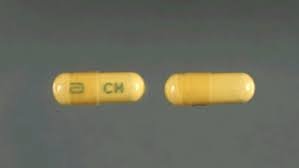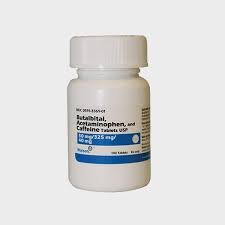Introduction to Pentobarbital Sodium
Pentobarbital sodium is a chemically synthesized short-acting barbiturate derived from barbituric acid. Its chemical composition includes the sodium salt of 5-ethyl-5-(1-methylbutyl) barbituric acid, which imparts the compound its distinctive CNS depressant properties. The molecular structure consists of a barbituric acid ring with substitutions that allow it to effectively interact with the nervous system, facilitating its pharmacological uses.
The history of pentobarbital sodium dates back to the early 20th century, when barbiturates were first discovered and started being used for their sedative and hypnotic effects. It was initially synthesized in 1928 and has since evolved in its medical applications. Originally, pentobarbital sodium was employed primarily as a sedative or to manage convulsive disorders due to its ability to depress the central nervous system.
Over the decades, the medical community has expanded the uses of pentobarbital sodium, finding it useful in various settings such as induction of barbiturate coma in patients with severe head injuries and managing refractory seizures. Additionally, it has been effectively utilized in both human and veterinary medicine for euthanasia due to its rapid and potent CNS depressant capabilities.
In the realm of pharmacology, pentobarbital sodium is classified as both a barbiturate and a CNS depressant. Barbiturates, in general, are known for their ability to reduce the activity of the central nervous system. Pentobarbital sodium, specifically, falls under the category of short-acting barbiturates, meaning it takes effect quickly and has a relatively brief duration of action compared to its intermediate and long-acting counterparts. This classification is integral to its specific uses and effectiveness in various medical treatments.
Mechanism of Action
Pentobarbital sodium exerts its central nervous system (CNS) depressant effects primarily through its interaction with gamma-aminobutyric acid (GABA) receptors. It predominantly targets the GABA-A receptor complex, which is a ligand-gated chloride channel pivotal in mediating inhibitory neurotransmission in the CNS. By binding to these receptors, pentobarbital sodium potentiates the effect of the neurotransmitter GABA, the principal inhibitory neurotransmitter in the brain.
Upon binding, pentobarbital sodium increases the affinity of GABA for the GABA-A receptors, leading to prolonged opening of the chloride channels. This results in an influx of chloride ions into the neuron, causing hyperpolarization of the neuronal membrane. Hyperpolarization, in turn, reduces the neuron’s ability to fire action potentials, thereby decreasing overall neuronal excitability. The amplified inhibitory effect of GABA results in the CNS depressant properties observed with pentobarbital sodium administration.
Physiologically, the enhanced inhibitory signaling initiated by pentobarbital sodium manifests in several notable outcomes. Sedation is one of the primary effects, making it a valuable agent for inducing calmness and reducing anxiety. At higher doses, pentobarbital sodium can induce a state of hypnosis, akin to deep sleep or unconsciousness. Additionally, by curbing excessive neuronal activity, pentobarbital sodium is effective in controlling seizures, contributing to its use as an anticonvulsant in medical settings.
These pharmacodynamic properties underline the therapeutic benefits of pentobarbital sodium. In clinical practice, the drug’s ability to induce sedation and hypnosis is leveraged for preoperative anesthesia and management of severe insomnia. The reduction in neuronal excitability also makes it a crucial component in the emergency treatment of acute convulsive episodes. Such diverse applications highlight the drug’s significant impact on central nervous system modulation, reinforcing its role in contemporary medical therapeutics.
Medical Applications and Therapeutic Uses
Pentobarbital sodium serves a pivotal role in modern medicine, primarily as a central nervous system (CNS) depressant with varied applications. Its efficacy in anesthesia for short surgical procedures makes it a preferred choice among clinicians. This barbiturate facilitates the rapid onset of sedation, ensuring patient comfort and stability during minor operations. The precise dosing is crucial, typically administered intravenously, to achieve the desired anesthetic effect without compromising patient safety.
Moreover, pentobarbital sodium is instrumental in managing seizure disorders, particularly when other anticonvulsant medications prove ineffective. Its potent CNS depressant properties help control acute seizure episodes, providing rapid relief for patients with refractory epilepsy. In such cases, the drug is often administered intravenously or intramuscularly under stringent medical supervision to mitigate the risk of adverse reactions and overdose.
Beyond its human applications, pentobarbital sodium is widely utilized in veterinary medicine. It is employed in euthanasia procedures due to its ability to induce a swift and painless death, ensuring minimal distress for the animal. Additionally, veterinarians use it as an anesthetic for small animals during surgeries, noting its reliability and effectiveness. Dosage and administration are meticulously calculated, often delivered through intravenous or intraperitoneal routes, tailored to the specific needs and physical condition of the animal.
Despite its widespread use, pentobarbital sodium requires careful monitoring due to its narrow therapeutic index. Medical professionals must ensure accurate dosing to prevent potentially fatal outcomes associated with overdose. Continuous research and development in the field of CNS depressants have ushered in newer alternatives, such as propofol and etomidate, which offer improved safety profiles and efficacy in certain clinical scenarios. These advancements underscore an ongoing commitment to enhancing patient outcomes and broadening therapeutic options within anesthesia and neurology.
Safety, Side Effects, and Ethical Considerations
Pentobarbital sodium, as a central nervous system depressant, necessitates stringent safety protocols due to its potent properties and potential for misuse. The safety profile of pentobarbital sodium reveals a spectrum of side effects, ranging from common to severe. Patients utilizing pentobarbital sodium might encounter drowsiness, dizziness, and headaches as typical side effects. However, more severe reactions include respiratory depression, hypotension, and in extreme cases, coma.
A critical aspect of pentobarbital sodium’s usage is the risk of dependency and abuse. Its addictive potential highlights the necessity of careful monitoring by healthcare professionals. Instances of misuse can lead not only to dependency but also to formidable withdrawal symptoms such as agitation, hallucinations, and seizures. These symptoms necessitate a gradual tapering of the dosage under medical supervision to mitigate severe withdrawal effects.
Additionally, responsible use guidelines are vital to minimize the risks associated with pentobarbital sodium. Patient monitoring should be rigorous, especially for those with preexisting health conditions that might exacerbate the drug’s side effects. Swift emergency responses to overdose are crucial and may involve the administration of activated charcoal or other supportive measures to counteract the depressant effects. Healthcare providers should be well-versed in these protocols to ensure patient safety.
Pentobarbital sodium also raises significant ethical considerations, particularly regarding its application in euthanasia. In veterinary medicine, its use is well-established and largely accepted for humane euthanasia in animals. However, its use in human euthanasia is subject to intense debate and varying legal frameworks. In countries where assisted dying is legal, pentobarbital sodium may be administered under strict regulations to ensure ethical integrity. Conversely, in regions where euthanasia remains prohibited, its use in this context is deemed illegal and ethically contentious.
These ethical dilemmas underscore the importance of ongoing dialogue among medical communities, legal authorities, and ethical boards to navigate the complex landscape of pentobarbital sodium’s applications. Contrasting perspectives highlight the necessity for clearly defined guidelines that respect both moral standards and patient autonomy, ensuring this potent CNS depressant is employed judiciously and ethically.






Reviews
There are no reviews yet.